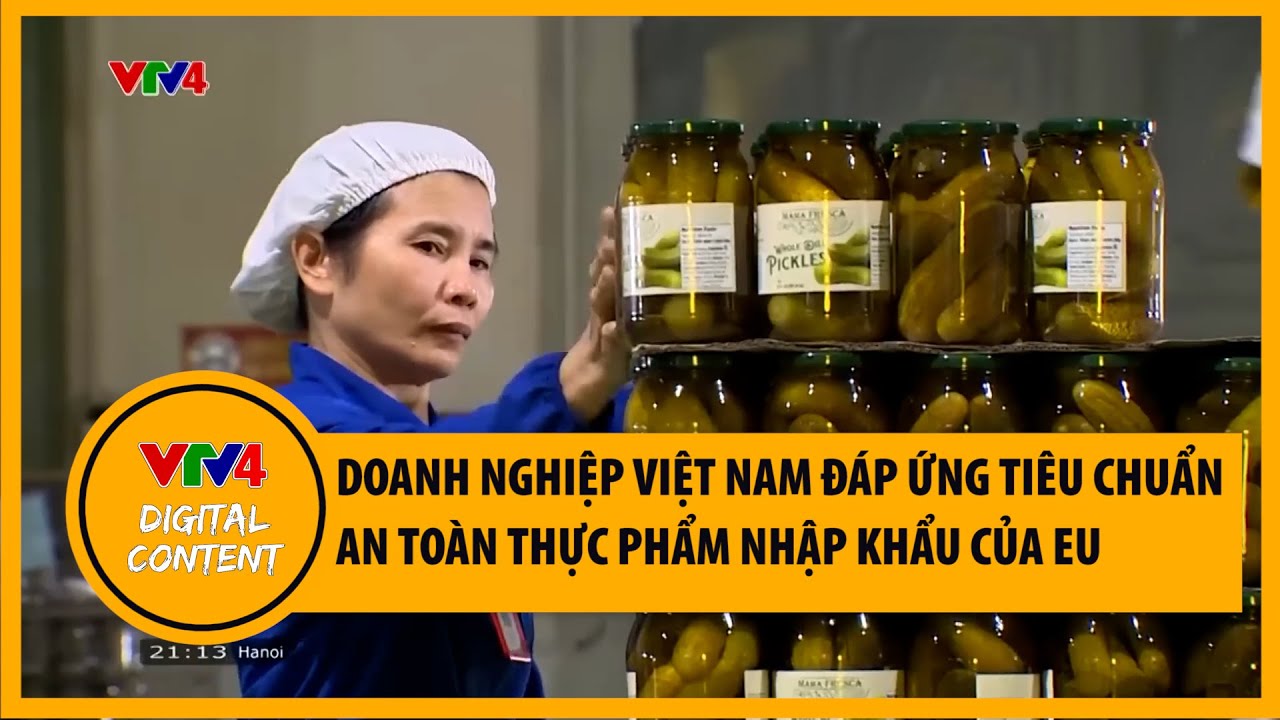Doanh Nghiệp Việt Nam Đáp Ứng Tiêu Chuẩn An Toàn Thực Phẩm Nhập Khẩu Của Eu | Vtv4
Unleash Your Creative Genius with MuseMind: Your AI-Powered Content Creation Copilot. Try now! 🚀
Vietnam has been making significant strides in expanding its export market, with the European Union (EU) emerging as one of its top destinations. The EU is currently Vietnam's leading export market, with a regular biannual meeting between the European Parliament and the European Council to assess the level of compliance with food safety and animal feed regulations of exporting countries, including Vietnam. These meetings serve as the basis for the EU to strengthen or relax control measures for each product from each country.
-
The Need for Improved Food Safety and Animal Feed Practices
For many Vietnamese agricultural exporters, meeting the stringent food safety standards of the EU remains a major challenge. Take the example of pesticide residue levels. Vietnamese companies have had to develop farms ranging from 15 to 60 hectares in size just to ensure a clean source of raw materials in accordance with EU standards. These limits on pesticide residue are much stricter compared to many other markets.
The EU has banned certain chemicals from being used in food production that Vietnam may allow. Moreover, discussions regarding concentration levels are limited. Despite these challenges, Vietnamese businesses are increasingly taking a proactive approach in complying with food safety regulations, particularly for major export markets like the EU.
-
Positive Developments and Continuous Improvement
Recent developments indicate progress in addressing food safety violations. In the second half of 2022 alone, there were no violations concerning instant noodles, whereas in the first half of the year, certain vegetables and spices were removed from the list of food safety control measures by the EU. This is a positive step forward in strengthening and enhancing the reputation of Vietnamese goods in the EU market.
However, it is important to note that the efforts towards compliance need to be continuous and coordinated. Violations by a few businesses can have a significant impact on the entire industry. This is particularly true for Vietnamese agricultural exporters who must familiarize themselves with the regulations of each importing country, especially for products like agricultural and aquatic goods, and fruits. Establishing strong partnerships with importers, who are well-versed in the regulations of their respective countries, can provide the best way to navigate these requirements. The regulations are frequently updated and amended, and close monitoring is crucial.
-
Beyond Food Safety: Environmental and Labor Regulations
In addition to food safety regulations, the EU is expected to continue enforcing regulations on environmental preservation, labor rights, deforestation, and energy balance policies. Vietnamese businesses need to actively update and meet these requirements. By doing so, they can leverage the benefits provided by the EU-Vietnam Free Trade Agreement (EVFTA) to enhance competitiveness, especially as many products will have zero tariffs from 2023 onwards.
The EVFTA opens up exciting possibilities for Vietnamese exporters to gain a strong foothold in the European market. However, this comes with the responsibility to ensure compliance with various regulations and standards set by the EU. By taking a proactive approach and continuously improving their practices, Vietnamese businesses can not only meet EU requirements but also expand their presence in other lucrative markets worldwide.
-
Long-Term Vision for Sustainable Growth
It is important for Vietnamese exporters to recognize that meeting food safety regulations is just the first step. To ensure sustainable growth and maintain a strong reputation, it is crucial to continue investing in research, development, and innovation. This will enable Vietnamese businesses to consistently improve product quality, diversify offerings, and adapt to changing consumer demands not only in the EU but also in other markets.
By embracing a forward-thinking mindset and consistently delivering high-quality products, Vietnamese exporters can build trust and establish long-term partnerships with customers worldwide. This will ultimately contribute to the growth and success of Vietnam's export industry, enabling the country to become a major player in the global market.
In conclusion, the EU has emerged as a vital export market for Vietnamese goods, particularly in the agricultural sector. While there are challenges in meeting the EU's stringent food safety regulations, Vietnamese businesses are actively working towards compliance and continuously improving their practices. By leveraging the benefits of the EVFTA and staying updated with evolving regulations, Vietnamese exporters can seize opportunities for sustainable growth and enhance their competitiveness in the global market.

Related Recaps
- 🔴LIVE : தமிழ்நாடு பட்ஜெட் கூட்டத்தொடர் 2023 -24 | TN Assembly | TN Govt | MK Stalin | PTS
- King Charles' coronation invitation debuts new title for Camilla | Rush Hour
- N3on Puts Baby Alien On A BLIND DATE With Woah Vicky..
- TỜ VÉ SỐ - Hài Tiểu Bảo Quốc, Hà Linh, Hoàng Sơn I HÀI VIỆT NAM @haivietnam
- Let's Make History | SWV & Xscape: The Queens of R&B | S1 E1 Recap